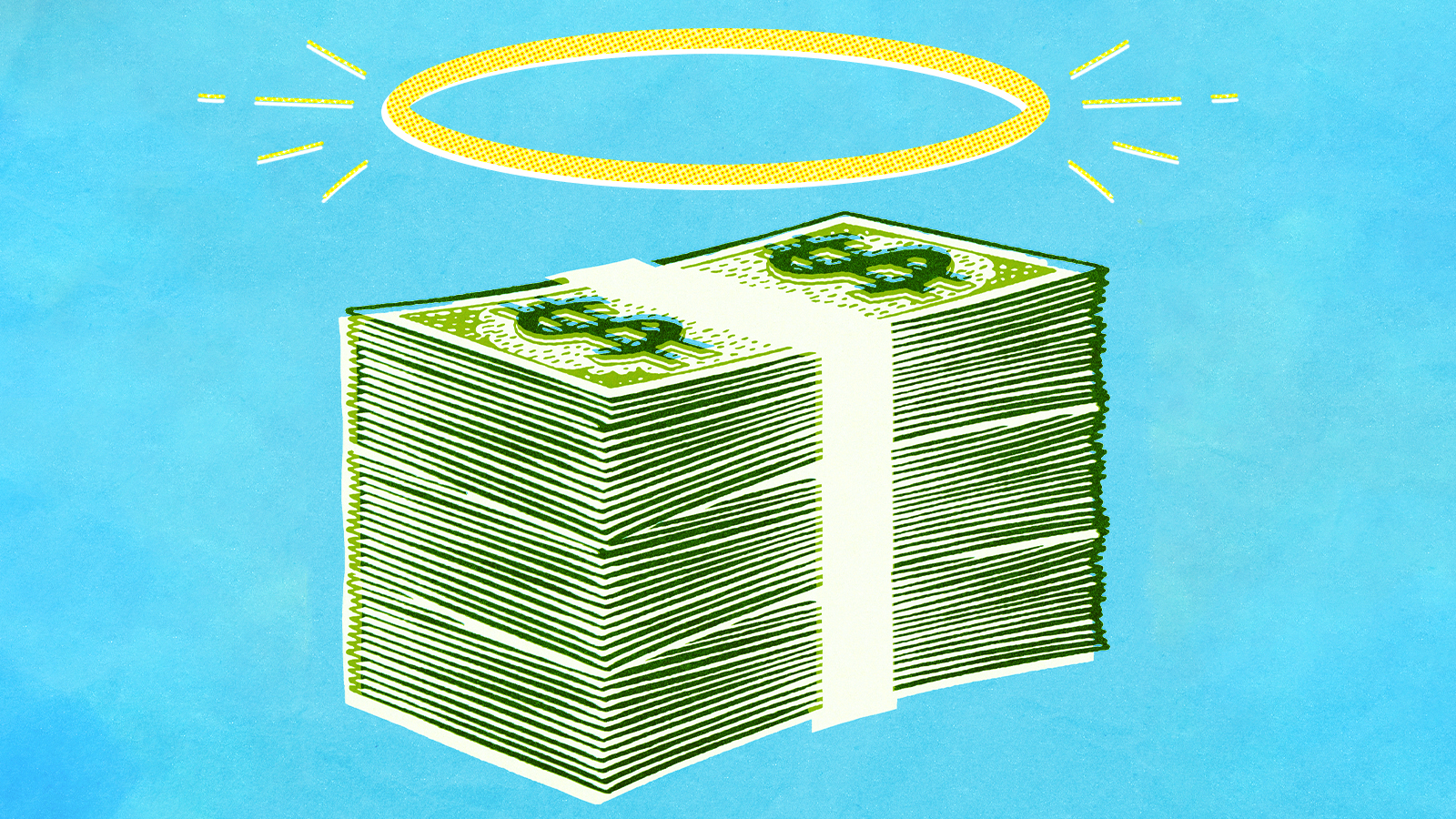Celebrity endorsers don't sell merch anymore. They sell morals.
Corporate America's new tactic for making money off your politics


A free daily email with the biggest news stories of the day – and the best features from TheWeek.com
You are now subscribed
Your newsletter sign-up was successful
Simone Biles has signed on as chief impact officer for Cerebral, an online mental health care provider, which may be the latest perfect landing for the world's greatest gymnast to stick. Since her time at the Tokyo Olympics this summer where, citing her mental health, Biles withdrew from the women's team gymnastics final competition, she has used her public platform to bring more attention to destigmatizing mental illness, touting therapy, and improving access to mental health resources. She'll now continue that work on Cerebral's payroll.
She'll also join a small group of other celebrities on the vanguard of a new model of celebrity-corporate partnership. Earlier this year, Prince Harry signed on with the wellness coaching startup, BetterUp, also taking the chief impact officer (CIO) title. And this August, Taco Bell chose Lil Nas X for the same role.
CIO is a new position, one introduced in just the last couple of years, and it's a window into how celebrity endorsements are becoming less about companies' products and more about their political and ethical brands. While most C-suite executives worry directly about the bottom line, the CIO is supposed to be devoted to honing a company's higher purpose and publicizing its contributions to the greater good.
The Week
Escape your echo chamber. Get the facts behind the news, plus analysis from multiple perspectives.

Sign up for The Week's Free Newsletters
From our morning news briefing to a weekly Good News Newsletter, get the best of The Week delivered directly to your inbox.
From our morning news briefing to a weekly Good News Newsletter, get the best of The Week delivered directly to your inbox.
Exactly how these celebrities will do that is uncertain. "I intend to help create impact in people's lives," Harry said of his new gig, a statement that did nothing to clarify the scope of his day-to-day responsibilities. Perhaps that's because the point of having famous people as CIOs isn't about what they'll do in the office. It's about who they are to the world — and what their public image means for authenticating and enhancing a brand's reputation by association.
There's nothing new about celebrities shilling for companies, of course. But the rise of the celebrity CIO signals an important shift from using stars as pitch persons for products — think Sammy Davis Jr. boosting Alka Seltzer back in the 1970s or Jennifer Aniston peddling Smartwater more recently — to bringing them in-house to substantiate a company as morally good. These celebrities aren't here to sell you shoes or soda, at least, not in so many words. They're onboard to assure you the company itself is living up to the celebrity's pre-established values.
That's why CIO spots must go to celebrities seen as "authentic" rather than merely famous, the usual criterion for hiring celebs to move merch. In announcing Lil Nas X's CIO role, for example, Taco Bell praised the rapper as being "authentically true to himself." At a time when social media feeds can be an unending roll of semi-famous influencers sharing "sponsored content," the celebrity CIO exists to imbue a company with a special air of social responsibility and awareness that chosen stars are believed to already embody.
This shift is a clear response to American consumers, especially younger ones, who expect the companies they patrionize to do more than sell them stuff. And it may be a smart way to reach millennials and Gen Z customers who have high rates of skepticism — and even hostility — towards capitalism: A 2019 Fortune survey found almost half of both generations had unfavorable views of capitalism, and in another study that same year, by Gallup, only 46 percent of millennials and zoomers indicated they thought positively of "big business."
A free daily email with the biggest news stories of the day – and the best features from TheWeek.com
Those feeling may not translate into economic revolution. But they don't suggest a very hospitable climate for big companies today, and they hint at the different relationship more and more Americans want with the brands they shop. Especially among Gen Z — the generation born between the mid-1990s and the early 2010s, and the only Americans who haven't lived through a period of economic prosperity as earlier generations have — research shows consumption is considered to be less about acquisition and more an expression of individual identity, even an ethical act. Zoomers want to support companies that make the world better, or, at least, do less harm.
Projecting such a socially conscious image can be a tricky act for large corporations. Draping stores in rainbow flags during Pride Month or sending top executives to appear at global climate summits — as Amazon, McDonald's, Microsoft, and other multinational corporations will do at COP26 in Glasgow — is often seen as a cynical ploy to make money off the latest cause célèbre.
But a celebrity CIO with an activist reputation could overcome that perception, which is why we may see many more famous chief impact officers in years to come. While faith in the country's institutions, including big companies, continues to plummet, Americans' trust of celebrities remains high. It's no wonder businesses want to cash in on that trust by making celebs part of the team.
The open question now is the direction of reputational flow: Will American consumers see famous CIOs as trustworthy endorsers or decide they're just selling out? Will these roles make companies look better or celebrities look worse?
Neil J. Young is a historian and the author of We Gather Together: The Religious Right and the Problem of Interfaith Politics. He writes frequently on American politics, culture, and religion for publications including The New York Times, The Atlantic, the Los Angeles Times, HuffPost, Vox, and Politico. He co-hosts the history podcast Past Present.
-
 Local elections 2026: where are they and who is expected to win?
Local elections 2026: where are they and who is expected to win?The Explainer Labour is braced for heavy losses and U-turn on postponing some council elections hasn’t helped the party’s prospects
-
 6 of the world’s most accessible destinations
6 of the world’s most accessible destinationsThe Week Recommends Experience all of Berlin, Singapore and Sydney
-
 How the FCC’s ‘equal time’ rule works
How the FCC’s ‘equal time’ rule worksIn the Spotlight The law is at the heart of the Colbert-CBS conflict
